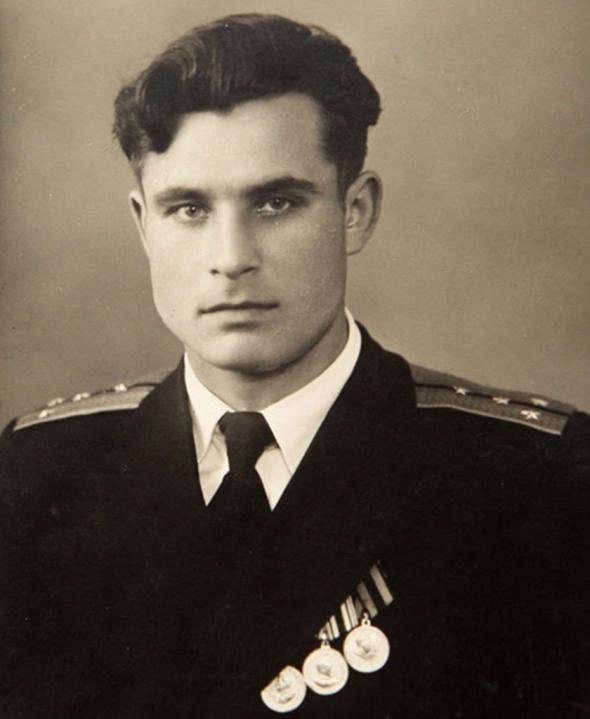
Vasili Arkhipov: The man who saved the world
So,
before I get into an amazing story that this is going to be, first let us have a little context of how the world was like in October 1962. The USA and the Soviet Union were 15 years into the Cold War with tensions reaching higher than ever. The US had deployed more than 100 missiles in Turkey and Italy (since these are closer to Russia) which were capable of destroying Moscow. This angered the Soviets who in reply started to deploy missiles in Cuba should the US attacks Moscow.
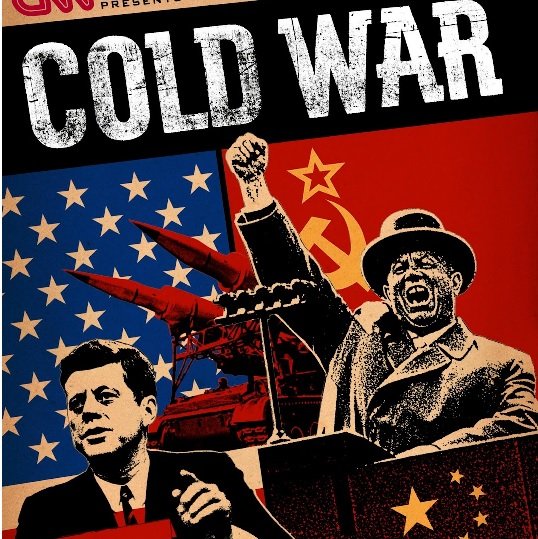

Now the story of this great man begins on 1 October 1962 when a B-59 Soviet Submarine starts its voyage with three of its other sister submarines to Cuba. On board were 11 of the finest submariners captained by Valentin Grigorievitch Savitsky along with political officer Ivan Semonovich Maslennikov and the second in command Vasili Arkhipov. The 4 submarines sailed off with nuclear missiles called “special weapons” to be deployed in Cuba.

Soviet submarine B-59
Meanwhile, in Cuba, a US aircraft had been shot down by a Soviet-made missile which solidified the earlier concern about Russia deploying its missiles in Cuba.

A U-2 reconnaissance photograph of Cuba, showing Soviet nuclear missiles, their transports and tents for fueling and maintenance.
This prompted US to order a blockade (JFK insisted on calling it a quarantine since it sounded less threatening) around Cuba so that no Soviet ship was able to come to the country. 40 destroyers, 4 aircraft carriers, and 358 aircrafts were now effectively hunting for any Soviet vessel that might be smuggling weapons. The 4 submarines which were now close to Cuba were told to hold off and remain hidden until further instructions were given from Moscow.

The B-59 submarine was a diesel submarine and got very hot while at sea. It was built to be used in the arctic weather but the detour from the original route made it sit in a very hot sea and along with an air conditioning failure, it made the temperatures inside the cabin in excess of 55-degree Celsius.
Food and water supplies were also getting empty and the crew was kept on just one glass of water per day as a result of it.
On 27th October 1962, the search for Soviet vessels was in full flow and finally, the B-59 submarine was found by the aircraft carrier USS Randolph. Soon a number of other destroyers and aircraft came to the point and started dropping depth charges in order to force B-59 to come to the surface for identification. Meanwhile, the crew of the submarine could listen to the Miami radio station in which there was news of more than 300 aircrafts and many destroyers circling Cuba. This prompted them to think that a war might have already been broken and in a moment of absolute anger and love for their country.
Captain Savitsk decided to launch the onboard nuclear weapons which had the destructive power similar to that of the one dropped on Hiroshima.
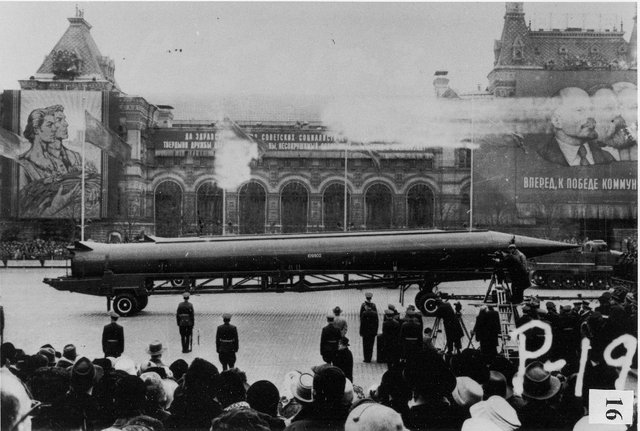
Soviet R-12 intermediate-range nuclear ballistic missile
Frustrated by the lack of an order from Moscow and continuous torture of the high temperature and the depth chargers, he decided this might be the best path to take. He called upon the political officer Ivan Semonovich Maslennikov and the second in command Vasili Arkhipov to get their authorization. With some discussion with the crew members, Maslennikov agreed to authorize the nuclear launch. Arkhipov however who had been in a nuclear accident a year before decided that the situations couldn't justify the launch of a nuclear weapon that could well become the reason for world’s destruction. An argument broke out with only Arkhipov against the launch, but he still didn’t authorize the nuclear launch at the end of it. His decision could well result in their death but he put his life in danger for all of humanity.
Had he said ‘Yes’ the ‘Special weapon’ onboard B-59 could have vaporized the 11 US naval ships which could have then started a chain of inadvertent developments killing almost everyone in the world.
Soon after the first nuclear strike, the US would've launched nuclear missiles at Moscow. London, Germany, Turkey would've been then destroyed by the second wave of nuclear strikes. The pentagon’s SIOP (Single Integrated Operational Plan) would’ve hurled more than 5000 nuclear missiles on thousands of targets. Basically, it would’ve been the destruction of most if not all of the civilization as a result of a doctrine which is now termed as Mutually Assured Destruction (MAD).
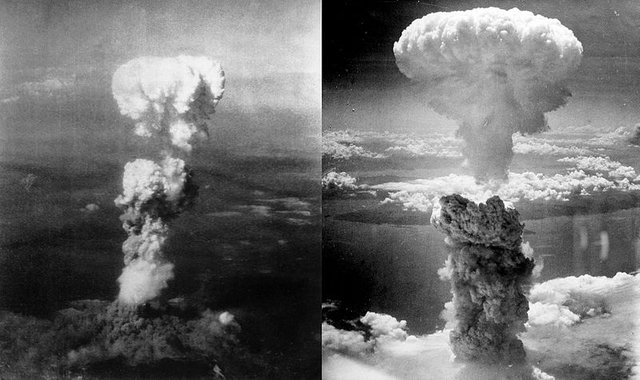
Atomic bomb explosions over Hiroshima, Japan, 6 August 1945 (left) and over Nagasaki, Japan, 9 August 1945 (right)
Arkhipov kept his cool and convinced his fellow submariners not to launch a nuclear strike and instead surface and await orders from Moscow. The submarines eventually surfaced but since they were in international waters US forces didn’t board them and directed them towards the Soviet Union and told them to go back. The 4 submarines returned to their country with the fear that going half the world to Cuba and returning back after being caught would be considered an act of cowardliness and this was exactly the case upon his arrival in Russia.
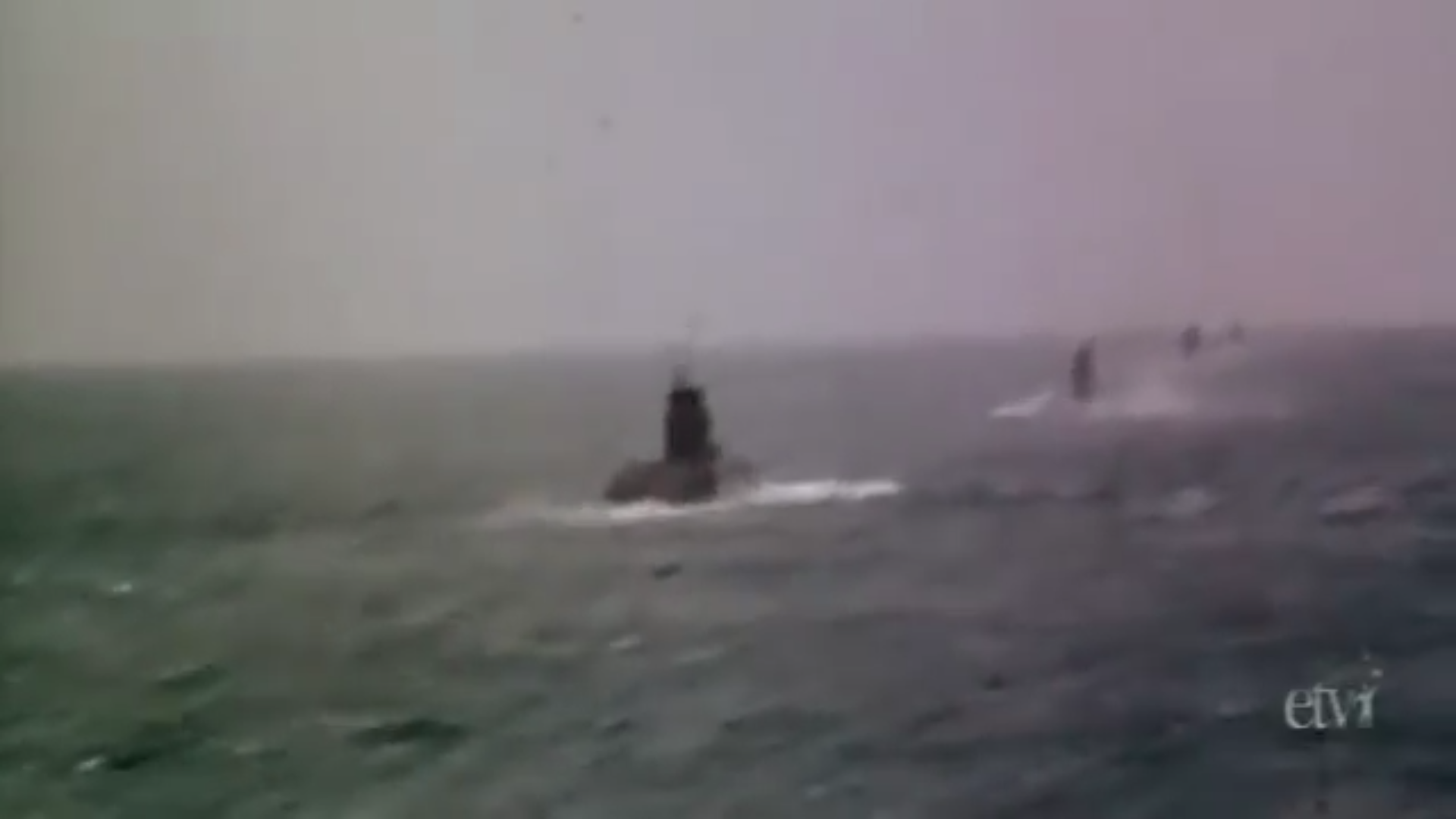
The four USSR submarines returning back to Russia (seen from USS Randolph)
Arkhipov and others were faced with disgrace from the country. One admiral even told them, “It would have been better of you’d gone down with your ship”. Arkhipov lived until 19th August 1998 when kidney failure which was a result of the exposure to radiation, took his life. His heroics weren’t well known to the world until in 2002 when retired commander Vadim Pavloich Orlav who was handling all the communication systems at B-59 in 1962, held a press conference. He let the world know that it was Vasili Arkhipov that ensured that the world lived that day.
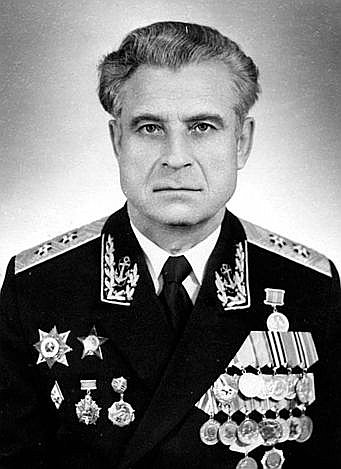
Hi! I am a robot. I just upvoted you! Readers might be interested in similar content by the same author:
https://steemit.com/politics/@littlevoice/you-and-almost-everyone-you-know-probably-owes-their-life-to-this-man
Downvoting a post can decrease pending rewards and make it less visible. Common reasons:
Submit
the man is great, thanks for sharing
Downvoting a post can decrease pending rewards and make it less visible. Common reasons:
Submit
Yes, he is. Sadly not very well known. Thanks for reading.
Downvoting a post can decrease pending rewards and make it less visible. Common reasons:
Submit
great post. thanks for sharing.
Downvoting a post can decrease pending rewards and make it less visible. Common reasons:
Submit
Welcome!
Downvoting a post can decrease pending rewards and make it less visible. Common reasons:
Submit